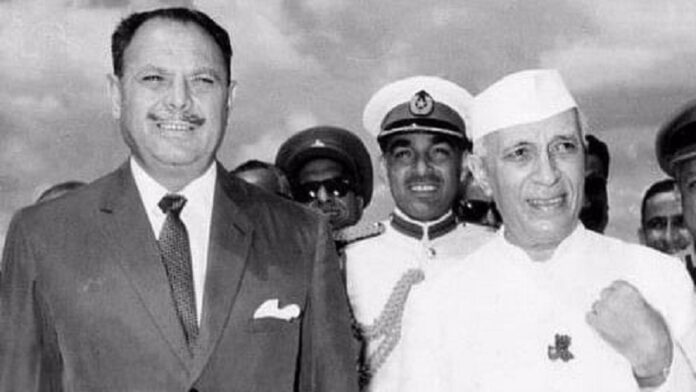Those watching India-Pakistan relationship closely predict that wranglings may start between them on Indus Waters Treaty (IWT) soon. May be sooner than expected as the 60th anniversary of signing of the Treaty beckons.
The IWT was signed between Pakistani dictator Ayub Khan and Indian prime minister Pandit Nehru on September 19, 1960, at Karachi, in triplicate. The third copy was meant for the World Bank which had nudged the two countries towards the treaty negotiations spread over several years.
The signing of this Treaty was an amicable way of dividing the six rivers of the Indus system, namely Indus, Jhelum, Chenab, Ravi, Beas and Satluj. Yes, dividing the rivers between the two countries, as sharing was not possible even in that era.
A war of words seems to be building up as Pakistan has asked for a meeting between the Indus Commissioners of the two countries. Incidentally, the two commissioners together constitute the Permanent Indus Commission (PIC) under Article VIII of the treaty. It has a Preamble, which is followed by 12 articles and eight (08) annexures.
For some time, the Pakistani side has been insisting on a meeting of officials of the two sides at Attari-Wagah border. This is a proposal that has not found favour with the Indian side, due mainly to the conditions created by the pandemic.
Instead, the Indian officials, including its Indus Commissioner, have offered to conduct the meeting through a virtual conference. All pending issues pertaining to the IWT can be discussed in this video conference, the Indian side has argued.
Under the treaty provisions, the PIC is a bilateral mechanism to discuss issues. Its meeting can convened on request by either side. Section 5 of Article VIII says: The Commission shall meet regularly at least once in a year, alternatively in India and Pakistan. This regular annual meeting shall be held in November or in such other month as may be agreed upon between the Commissioners. The Commission shall also meet when requested by either Commissioner.
The two sides need to discuss the disagreement over the Kishenganga project and 1,000 MW Ratle project on Chenab in Kishtwar district. The Ratle project is located on Chenab several kilometres behind the Baglihar project which started power production in 2008.
Under treaty provisions, India has all rights to produce hydropower on the Western Rivers while they flow through its territories. However, Pakistan can raise objections to the designs of the power projects. The two sides have to then exchange maps and designs to sort out things. However, till date, there has not been any power project on which Pakistan has not objected. These objections lead to cost escalations for India, but this is something it accepts as a fait accompli. (My book on Indus Water Treaty, see image below, is due out this year).
It is fairly common for politicians of different hues, and even declared terrorists like Hafiz Saeed and Syed Salahuddin to accuse India of “stealing Pakistan’s waters”. threatening India of dire consequences for this appears like another favourite pastime for trouble-makers.
At the official level, the PIC and Article IX which deals with dispute redressal mechanism are the established channels of communication. For some years now, Pakistan has been asking the World Bank to mediate between the two sides. However, there is no provision in the treaty for any such intervention.
It needs to be stressed here that the treaty provides for allocation of 80% waters to Pakistan and only 20% to India. However, as its population has quadrupled since 1947, per capita water availability in Pakistan has gone down substantially. In this acute water crisis, the Pakistani politicians resort to blaming India often.
Such tactics are being used mainly to deflect attention of average Pakistanis away from domestic issues. These issues include gross water mismanagement, inequitable water distribution between various provinces, lack of sufficient number of reservoirs etc. India then comes handy as a ready punching bag to be the source of all water-related ills plaguing Pakistan.
Sant Kumar Sharma, a seasoned journalist, is an authority on Jammu and Kashmir. Two of his books on Article 370 and Delimitation are already out. The third one on Indus Waters Treaty is with the publishers.
Sant began as a teacher but after six years, joined the Indian Express, Chandigarh in 1990, the year when terrorism was taking its first step in J & K and soon there would be exodus of lakhs of Kashmiri Pandits from the Valley. He subsequently worked for The Statesman, The Times of India and Star News among others. He is based in Jammu since May 2000.


